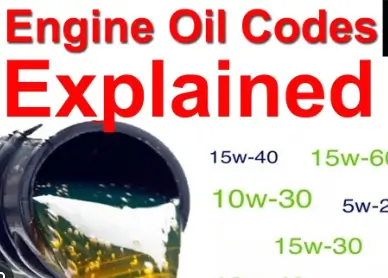Navigating engine oil specifications for your vehicle is crucial for optimal performance. With detailed specifications from manufacturers, it is important to choose the right oil weight and type recommended by your carmaker, as stated in your owner’s manual.
By adhering to these specifications, you can ensure that your engine is properly lubricated and protected. The viscosity grade of the oil is also important to consider, as it determines the flow and thickness of the oil.
Understanding the difference between mineral and synthetic engine oils, as well as the various certifications, can help you make the best choice for your car.
In this guide, we will provide you with all the necessary information to select the best engine oil for your vehicle, ensuring longevity and performance.
Understand Your Vehicle’s Oil Needs
Understanding your vehicle’s oil needs is crucial when navigating engine oil specifications. By referring to your owner’s manual and considering factors such as oil weight and viscosity grades, you can determine the right type of engine oil for optimal performance and protection.
When it comes to maintaining your vehicle’s engine, understanding its oil needs is crucial. The right oil can significantly impact your vehicle’s performance, interaction with engine components, and long-term health.
It’s essential to choose the correct oil specifications for your vehicle to ensure optimal performance and avoid potential issues down the line. In this guide, we will explore the importance of the right oil for vehicle performance, its interaction with engine components, and how it contributes to the long-term health of your vehicle.
Importance Of The Right Oil For Vehicle Performance
Your vehicle’s performance heavily relies on the quality and specifications of the engine oil you choose. Using the right oil ensures that your engine operates smoothly, maximizing power and fuel efficiency.
The proper oil viscosity and additives are specifically designed to provide lubrication and protection to vital engine components, allowing them to function optimally under various conditions. Without the right oil, your vehicle may experience decreased performance, increased friction, and even potential damage to engine parts.
Interaction With Engine Components
Engine oil plays a vital role in the interaction of various engine components. One of its main functions is to lubricate and reduce friction between moving parts such as piston rings, valve train, and bearings. With proper lubrication, these components can operate smoothly, reducing wear and tear and preventing premature failure.
Additionally, the right oil can also help regulate operating temperatures by dissipating heat, further protecting engine components from overheating.
Long-term Health Of Your Vehicle
Choosing the right oil for your vehicle is not only crucial for immediate performance but also for its long-term health. Engine oil acts as a protective barrier, preventing contaminants from entering the engine and causing damage.
Over time, dirt, debris, and sludge can accumulate within the engine, leading to reduced efficiency and potential breakdowns. By adhering to the recommended oil specifications, you can ensure that your engine remains clean and well-maintained, promoting longevity and preventing costly repairs.

Credit: www.press.bmwgroup.com
Navigating Engine Oil Standards
When it comes to choosing the right engine oil for your vehicle, understanding the various oil standards is essential. Engine oil standards ensure that the oil you select meets the specific requirements of your vehicle, providing optimum engine protection and emissions control. In this article, we will explore the three main oil standards you need to navigate: API, ACEA, and manufacturer-specific standards.
Api
API, or the American Petroleum Institute, is a widely recognized standard for engine oils in the United States. It classifies oils into different categories based on their performance in various engines. The API classification is denoted by two letters, followed by a number. The first letter represents the oil’s performance in gasoline engines, while the second letter represents its performance in diesel engines. The number provides information about the oil’s relative performance within its category.
Acea
ACEA, or the European Automobile Manufacturers’ Association, is the standard primarily used in Europe. Similar to API, ACEA assigns different specifications to engine oils, focusing on the performance of oils in European vehicles. ACEA specifications are denoted by a combination of letters and numbers, representing different performance categories and requirements.
Manufacturer-specific Standards
In addition to API and ACEA, many vehicle manufacturers have their own specific oil standards. These standards are developed to address the specific needs and requirements of their engines. It is crucial to consult your vehicle’s owner’s manual or contact the manufacturer to identify which oil specifications are recommended for your vehicle.
Oil certification marks provide important information about the quality and performance of the oil. These marks indicate that the oil has gone through rigorous testing to meet specific industry standards. By looking for certification marks, you can ensure that the oil you select is suitable for your vehicle and will provide the necessary engine protection and emissions control.
Selecting the right engine oil that adheres to the appropriate standards plays a pivotal role in engine protection and emissions control. Engine oils that meet the required specifications ensure optimal lubrication, reducing friction and wear on critical engine components.
They also help maintain proper engine cleanliness by preventing the buildup of harmful deposits. Additionally, oil formulations that meet the recommended standards contribute to effective emissions control, reducing harmful pollutants released into the environment.
Unraveling Viscosity Ratings For Your Vehicle
When it comes to choosing the right engine oil for your vehicle, understanding viscosity ratings is essential. Viscosity refers to the thickness or consistency of the oil and plays a crucial role in protecting your engine from wear and tear. In this section, we will explore the impact of viscosity on your vehicle’s performance, as well as the factors that should be considered when selecting the appropriate oil for your driving conditions.
Understanding Viscosity And Its Impact
Viscosity is typically represented by two numbers, such as 10W-30 or 5W-20. The first number, followed by a “W”, represents the oil’s winter or cold-start viscosity. The lower this number, the easier it flows during cold temperatures. The second number represents the oil’s viscosity at operating temperatures. Generally, a higher number indicates a thicker oil.
The viscosity rating is vital because it affects the oil’s ability to lubricate engine components, especially during start-up and when the engine is running hot. Using oil with the wrong viscosity can lead to inadequate lubrication, increased friction, and reduced fuel efficiency. Therefore, it is crucial to follow your vehicle manufacturer’s recommended viscosity rating to ensure optimal engine performance and longevity.
Weather And Driving Conditions Considerations
Weather and driving conditions play a significant role in determining the ideal viscosity rating for your vehicle. Higher viscosity oils, such as 10W-40 or 15W-40, are more suitable for warmer climates or heavy-duty applications, where the engine operates at higher temperatures. These oils provide superior protection against thermal breakdown and oil thinning under extreme conditions.
On the other hand, lower viscosity oils, such as 5W-30 or 0W-20, are recommended for colder climates or vehicles that undergo frequent short trips. These oils flow more easily during cold starts, ensuring better lubrication in cold weather and minimizing engine wear. It is important to consider your typical driving conditions and the climate in which you live to select the appropriate viscosity rating.
Multi-grade Vs. Single-grade Oils
When it comes to engine oil, you may come across the terms “multi-grade” and “single-grade.” Single-grade oils, represented by a single number such as SAE 30 or SAE 40, have a fixed viscosity and are suitable for specific temperature ranges. However, they tend to be less versatile and may require more frequent oil changes.
On the other hand, multi-grade oils, such as 10W-30 or 5W-20, offer a wider range of viscosities and can adapt to different temperature conditions. These oils are formulated with additives that allow them to flow better at colder temperatures while maintaining sufficient thickness at higher temperatures. Multi-grade oils provide better protection and versatility, making them the preferred choice for most modern vehicles.
In conclusion, understanding viscosity ratings and considering factors such as weather, driving conditions, and the type of oil (multi-grade or single-grade) are crucial when selecting the right engine oil for your vehicle. By adhering to your vehicle manufacturer’s specifications and recommendations, you can ensure optimal engine performance, fuel efficiency, and overall longevity of your vehicle.
Synthetic Vs. Conventional Engine Oils
When it comes to choosing the right engine oil for your vehicle, one of the key decisions you’ll need to make is whether to go for synthetic oil or conventional oil. Both types of oil have their pros and cons, and understanding the advantages of each can help you make an informed decision.
In this section, we will explore the advantages of synthetic oils in terms of performance and the cost-effectiveness of conventional oils. We will also discuss the situations that may favor one oil type over the other.
Advantages Of Synthetic Oils In Performance
Synthetic oils are known for their superior performance compared to conventional oils. These oils are created through a complex process of refining and purifying crude oil, resulting in a more consistent and stable product. Synthetic oils offer several advantages:
- Improved Lubrication: Synthetic oils have a more uniform molecular structure, which allows them to provide better lubrication, reducing friction between engine parts. This leads to reduced wear and tear, and improved overall engine performance.
- Enhanced Temperature Resistance: Synthetic oils are designed to withstand high temperatures better than conventional oils. This makes them ideal for vehicles that are driven in extreme conditions or subjected to heavy loads, such as towing or racing vehicles.
- Increased Fuel Efficiency: Synthetic oils have lower viscosity, which means they flow more easily compared to conventional oils. This reduces the resistance within the engine, resulting in improved fuel efficiency and potentially better mileage.
- Longer Oil Change Intervals: Synthetic oils generally have a longer lifespan compared to conventional oils. They are engineered to resist oxidation and breakdown, allowing for extended oil change intervals, saving both time and money in the long run.
Cost-effectiveness Of Conventional Oils
While synthetic oils offer numerous performance benefits, conventional oils still have their place in the market, particularly due to their cost-effectiveness. Here are a few reasons why conventional oils may be a more economical choice:
- Lower Price: Conventional oils are generally more affordable than synthetic oils. This can make them a preferred option for budget-conscious vehicle owners or those who drive older vehicles with less demanding engine requirements.
- Compatibility with Older Engines: Some older engines may not be compatible with synthetic oils. In such cases, conventional oils are a suitable alternative, as they have been formulated to meet the specific needs of these engines.
- Standard Performance Requirements: For everyday driving conditions and regular maintenance, conventional oils often meet the basic performance requirements of most vehicles. They provide adequate lubrication and protection for normal operating conditions.
Situations Favoring Each Oil Type
The choice between synthetic and conventional oils may also depend on specific situations or factors. Here’s a breakdown of situations where one oil type may be more favorable:
| Synthetic Oil | Conventional Oil |
|---|---|
| High-performance vehicles | Older vehicles with specific oil requirements |
| Extreme climate conditions (hot or cold) | Vehicles used for short, infrequent drives |
| Heavy towing or racing applications | Everyday commuting or city driving |
Ultimately, the choice between synthetic and conventional oils depends on factors such as your vehicle’s needs, your driving habits, and your budget. It’s always recommended to consult your vehicle’s owner’s manual or seek advice from a trusted mechanic to make sure you choose the right engine oil for your specific requirements.
Optimal Oil Change Practices
When it comes to optimal oil change practices, navigating engine oil specifications for your vehicle is crucial. Knowing the recommended oil specification and understanding viscosity grades can help you choose the best engine oil for your car, ensuring its proper performance and longevity.
Recognizing Signs Your Vehicle Needs An Oil Change
Keeping track of your vehicle’s oil change schedule is essential for maintaining optimal engine performance. However, it’s not just about sticking to the recommended time frame. You also need to be aware of signs that your car is due for an oil change. Look out for:
- Dark, dirty oil on the dipstick
- Engine running louder than usual
- Decreased fuel efficiency
- Engine overheating
- Warning light on the dashboard
Frequency: Manufacturer Vs. Mechanic Recommendations
While manufacturers generally provide a standard oil change interval for their vehicles, it’s worth noting that mechanics might suggest a different frequency based on various factors such as your driving habits and the condition of your engine. Always consult with a trusted mechanic to determine the best oil change interval for your specific vehicle. Remember, it’s better to err on the side of caution and change your oil more frequently rather than risk engine damage.
Diy Oil Change Tips For Owners
If you prefer a hands-on approach and want to save some money, performing an oil change yourself can be a viable option. Here are a few tips to ensure a successful DIY oil change:
- Prepare the necessary tools and materials: oil filter, new oil, oil pan, wrench, funnel, and gloves.
- Refer to your vehicle’s owner manual for the recommended oil type and viscosity.
- Choose high-quality oil and filter that meet or exceed the manufacturer’s specifications.
- Make sure the engine is warm but not hot to ensure easy oil flow.
- Position the oil pan beneath the drain plug and carefully remove the plug to drain the old oil.
- Replace the drain plug and remove the old oil filter using an oil filter wrench.
- Apply a thin layer of oil to the rubber gasket of the new oil filter and screw it on by hand.
- Tighten the filter according to the manufacturer’s instructions.
- Using a funnel, pour the new oil into the engine, checking the oil level with the dipstick periodically.
- Dispose of the used oil at a designated recycling center.
By following these tips and guidelines, you can ensure a smooth and efficient DIY oil change for your vehicle.
Frequently Asked Questions On Navigating Engine Oil Specifications For Your Vehicle
How Do I Know What Kind Of Engine Oil I Need For My Car?
To know what kind of engine oil you need for your car, refer to your owner’s manual. It will provide specific information about oil weight, type (synthetic or conventional), and any other recommendations from the carmaker. Follow these guidelines for the best oil choice for your engine.
How Do You Read Engine Oil Specs?
To read engine oil specs, refer to your car’s owner’s manual. It will provide specific information on the recommended oil weight and type for your engine. Stick to the guidelines mentioned in the manual to ensure optimal engine performance.
What Is The Recommended Oil Specification?
The recommended oil specification for your vehicle can be found in your owner’s manual. It will provide information on the type of oil (conventional or synthetic) and the viscosity grade (such as 5W-30 or 10W-40) that is suitable for your engine.
It is important to follow the manufacturer’s recommendations for optimal engine performance and longevity.
How Do You Know What Weight Oil You Should Use For A Particular Engine?
To determine the correct weight oil for your engine, refer to your owner’s manual. The manual will provide specific information about the recommended weight and possibly the type of oil (synthetic or conventional). Adhering to the manual’s instructions is crucial for optimal engine performance.
Conclusion
Understanding engine oil specifications is crucial for maintaining the health and longevity of your vehicle. By considering factors such as viscosity, certifications, and the recommendations provided by your car manufacturer, you can ensure you choose the right engine oil for your vehicle.
Taking the time to navigate engine oil specifications will ultimately contribute to the optimal performance and efficiency of your vehicle’s engine, providing you with a smoother and more enjoyable driving experience. So, don’t underestimate the importance of choosing the right engine oil for your vehicle’s needs.


Leave a Reply